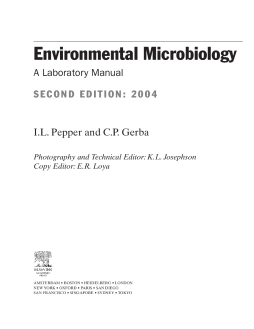
Additional Information
Book Details
Abstract
Environmental Microbiology: A Laboratory Manual is designed to meet the diverse requirements of upper division and graduate-level laboratory sessions in environmental microbiology. The experiments introduce students to the activities of various organisms and the analyses used to study them. The book is organized into three thematic sections: Soil Microbiology, Water Microbiology, and Environmental Biotechnology. The first section includes experiments on the soil as a habitat for microorganisms, and introduces the main types of soil microorganisms, how they interact with the soil, and the techniques used in their analysis. Experiments in the second section cover assays of microbial pathogens--bacteria, viruses, and protozoan parasites--used in food and water quality control as well as an exercise in applied bioremediation of contaminants in water. The final section on biotechnology includes applications of the polymerase chain reaction (PCR) for the detection of bacteria and the use of enrichment cultures and a computer-based, physiological test bank to isolate and identify a bacterium useful in bioremediation. Designed for maximum versatility and ease of use for both the student and instructor, each experiment is self-contained and includes theoretical, practical, and pedagogical material.
* New edition incorporates new experiments and the latest techniques
* Designed for maximum versatility and ease of use for the student and instructor
* Each experiment is self-contained and includes theoretical, practical, and pedagogical material.
"I...would strongly recommend this laboratory manual for any environmental microbiology course (at the undergraduate/graduate level)." - Hanan El-Mayas, Georgia State University
"[The manual] provides a very good introduction to a variety of approaches used to assess microorganisms in the environment." - Deborah T. Newby, Idaho National Laboratory
"I thank the authors for making this information available to the many scientists and technicians who will benefit from it." - M.B. Kirkham, Kansas State University and author of Principles of Soil and Plant Water Relations
